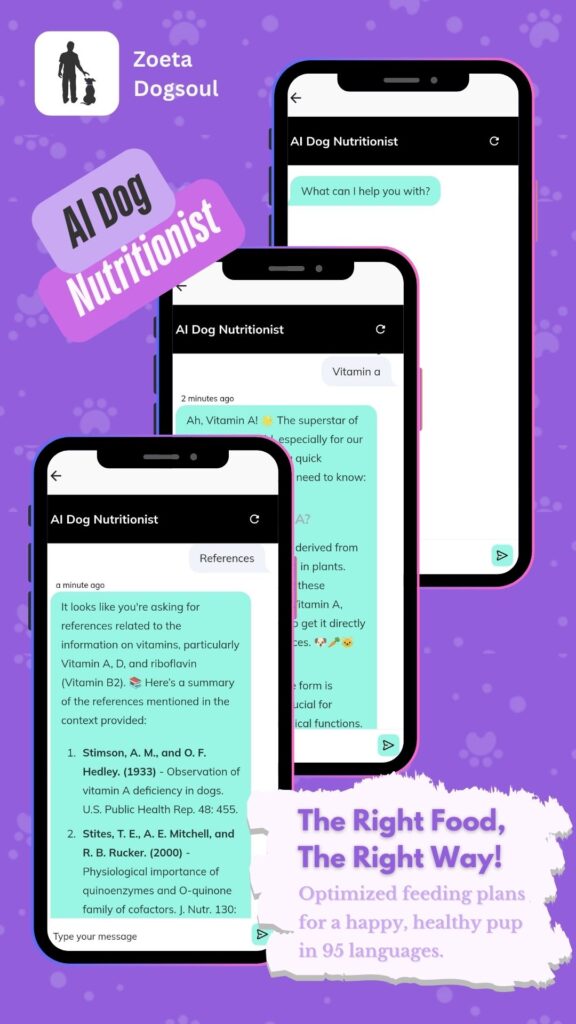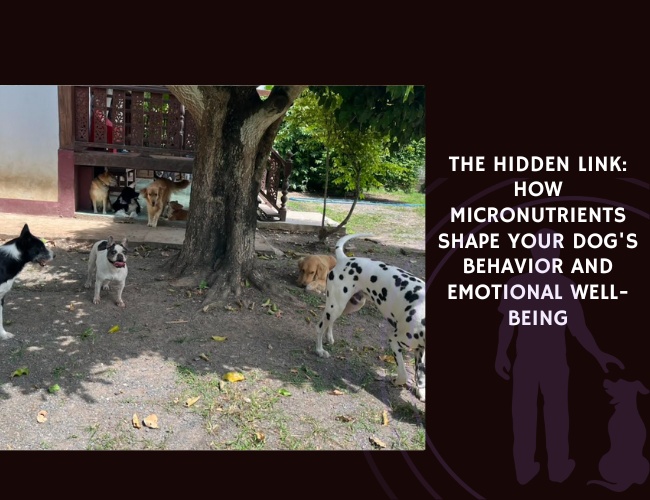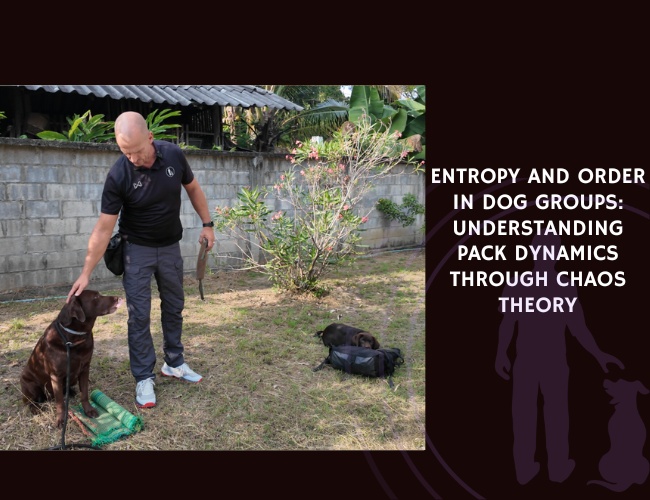Understanding the Importance of Dog Nutrition
Impact of Proper Nutrition on Dog Health, Longevity, and Quality of Life
You’ll find it interesting that studies reveal proper nutrition is a cornerstone for the health, longevity, and overall quality of life of our furry friends. A well-balanced diet significantly impacts a dog’s body functions, from immune support to mental sharpness. When dogs receive the right nutrients, they are less prone to health issues that can reduce their lifespan and vitality. Balanced diets improve longevity, mobility, and mental alertness, contributing to a better quality of life for dogs.
Role of Balanced Diet in Preventing Common Health Issues like Obesity and Diabetes
Balanced nutrition plays a crucial role in preventing common health issues like obesity and diabetes. These conditions are increasingly prevalent among pets due to overfeeding and poor dietary choices. Obesity affects over 50% of dogs, leading to joint issues, diabetes, and heart disease. A balanced diet helps maintain a healthy weight, ensuring your pet stays active and happy. Nutritional education can help prevent reliance on unhealthy processed foods and ensure pets receive the necessary nutrients to thrive.
Connection Between Nutrition and Immune Function, Skin Health, and Energy Levels
Nutrition is intimately connected to several critical aspects of a dog’s health, including immune function, skin health, and energy levels. A diet rich in essential vitamins and minerals can boost a dog’s immune system, making them less susceptible to infections and illnesses. Proper nutrients support the skin and coat health, reducing the risk of conditions such as dry skin or a dull coat. Additionally, balanced diets provide the necessary energy for dogs to stay active and playful. Omega-3 fatty acids, for example, aid in brain function, reduce inflammation, and enhance coat health.
Proper hydration, often overlooked, is also vital for dogs. It aids in digestion, temperature regulation, and kidney health. Ensuring your dog has access to clean water is as essential as providing them with nutritious food.
By understanding and implementing proper nutrition, dog owners can make a substantial difference in their pets’ lives, ensuring they lead long, healthy, and happy lives. Regular vet check-ups and tailored nutrition plans can further help in maintaining optimal health.
Essential Nutrients for Dogs
Providing your dog with the right nutrients is essential for their health, longevity, and overall well-being. Let’s dive into the key nutrients, both macro and micronutrients, that contribute to a balanced diet and why hydration is equally important.
Key Macronutrients
Protein
Proteins are vital for your dog’s muscle maintenance and overall cellular function. They serve as the building blocks for muscles, organs, and tissues, ensuring that your dog remains strong and healthy. Studies have shown that a protein-rich diet supports muscle repair and growth, keeps the immune system robust, and contributes to overall longevity and vitality.
Fats
Fats provide essential energy, support skin health, and aid in the absorption of vitamins. They are indispensable for your dog’s brain function and help maintain a healthy and shiny coat. Moreover, fats contribute to the production of vital hormones and can also be a source of long-lasting energy, which is especially important for active dogs.
Carbohydrates
While carbohydrates should be balanced, they are an important energy source for dogs. They help in maintaining glucose levels, which is crucial for daily activities. However, it’s essential to avoid overfeeding carbohydrates to prevent weight gain. Complex carbs from whole grains and vegetables provide necessary fiber, aiding in digestion and keeping your dog’s energy levels stable.
Critical Micronutrients
Vitamins and Minerals
Vitamins and minerals are crucial for maintaining your dog’s health. They support a range of bodily functions. For instance:
- Vitamins: Vitamins like A, D, E, and K are fat-soluble and necessary for immune function, vision, blood clotting, and bone growth.
- Minerals: Essential minerals such as calcium, phosphorus, and potassium are integral for bone strength, muscle function, and overall metabolic processes.
Omega-3 Fatty Acids
Omega-3 fatty acids are renowned for their role in reducing inflammation, aiding brain function, and enhancing coat health. Incorporating these fatty acids into your dog’s diet can significantly improve their skin condition and cognitive abilities, thereby enhancing their quality of life.
The Importance of Hydration
Water is often the most overlooked component of a dog’s diet, yet it is indispensable. Proper hydration aids digestion, regulates body temperature, and ensures kidney health. Always ensure your dog has access to fresh, clean water to prevent dehydration, which can lead to serious health issues. A well-hydrated dog will have more energy, better concentration, and overall improved health.
Understanding and providing the proper nutrients for your dog is not just a task but a mindful practice that ensures their well-being. By focusing on protein, fats, carbohydrates, vitamins, and minerals, as well as hydrating them properly, you are setting the stage for a healthy, vivacious life for your furry friend.
Next, we will address and debunk some common nutritional myths and misconceptions that many dog owners encounter in their quest for the ideal diet.
Common Nutritional Myths and Misconceptions
Truth About Grain-Free Diets
“You’ll find it interesting that studies reveal not all grains are harmful to dogs. While there are plenty of debates around grain-free diets, it’s important to understand their actual impact on your pet’s health. Some grains, in fact, provide essential nutrients and fiber. They can aid digestion and promote a healthy gut. It’s a misconception that grains are inherently bad; the key is moderation and choosing the right types of grains. So, your furry friend can benefit from a diet that includes grains without suffering any adverse effects.”
Factual Analysis of Raw Food Diets
Moving on to raw food diets, the idea here is that these diets are more natural and thus healthier for dogs. While it’s true that raw diets can offer some benefits, like improved coat health and higher energy levels, there are also significant risks to consider. Raw meat can be a source of bacteria like Salmonella and E. coli, which can be harmful not just to your dog but to you as well. Moreover, preparing a balanced raw diet at home requires a lot of care and nutritional knowledge to ensure your dog gets all the essential nutrients. Therefore, it’s crucial to consult your veterinarian before making the switch to a raw food diet.
Debunking the ‘More Protein is Always Better’ Myth
Now, let’s address the myth that more protein is always better. You might think that since dogs need protein for muscle maintenance, the more, the merrier. But that’s far from the truth. Excess protein can lead to various health issues, including stressing your dog’s kidneys. A balanced diet with the right amount of protein, tailored to your dog’s specific needs, is the way to go. Whether your dog is highly active or enjoys a more laid-back lifestyle, protein levels should be adjusted accordingly.
Continue enhancing your understanding of dog nutrition by exploring the labels on commercial dog foods and creating a balanced plan for your furry friend in our next discussion.
Health Consequences of Poor Nutrition
Understanding Obesity Risks and Related Health Complications
Obesity is a significant health issue affecting over 50% of dogs. Many owners are unaware of the risks associated with canine obesity, which include joint issues, diabetes, and heart disease. Unlike humans, dogs can’t manage their weight consciously, relying solely on their owners to provide a balanced diet and adequate exercise. Carrying excess weight puts unnecessary stress on a dog’s joints, leading to arthritis and mobility problems. Additionally, obesity can result in diabetes and increase the risk of heart disease, which can drastically reduce a dog’s quality of life and lifespan.
Recognizing Signs of Malnutrition and Nutrient Deficiencies
Just as with obesity, malnutrition in dogs is a critical issue that owners must be vigilant about. Malnutrition occurs when a dog’s diet lacks essential nutrients, leading to several health problems. Signs of malnutrition include a dull, brittle coat, weak immune function, and developmental issues in puppies. A malnourished dog might also exhibit lethargy, weight loss, and digestive problems such as diarrhea or bloating.
It’s important for dog owners to recognize these signs early and consult with a veterinarian to adjust their pet’s diet accordingly. Ensuring that your dog receives a balanced intake of proteins, fats, carbohydrates, vitamins, and minerals can prevent these deficiencies and foster overall well-being.
Impact of Poor Diet Choices on Longevity and Quality of Life
Dogs on low-quality or imbalanced diets often have reduced longevity and a poorer quality of life. Improper dietary choices can lead to chronic health conditions that compromise a dog’s overall physical and mental health. For example, a diet high in processed foods with excess fillers and artificial additives can lead to digestive issues, such as bloating and food intolerances. Over time, these health problems can accumulate, leading to a shortened lifespan.
Moreover, a poor diet negatively impacts a dog’s energy levels, skin, and coat health, and immune function. Dogs fed a balanced diet are more likely to be energetic, have a shiny coat, and resist common ailments. Ensuring your dog has access to high-quality, nutritionally balanced food directly correlates with their overall happiness and longevity.
Transitioning from one life stage to another, such as from puppy to adult or senior, also requires dietary adjustments to maintain optimal health. By understanding the specific nutritional needs at each life stage, you can help your dog lead a healthier, happier life.
Remember, the choices you make regarding your dog’s nutrition play a pivotal role not just in their physical well-being but also in their overall quality of life. Taking proactive steps towards a balanced diet can prevent numerous health issues and ensure your furry friend enjoys the best life possible.
Making Informed Food Choices
Understanding how to make informed food choices for your furry friend is crucial for their overall health and longevity. There are many factors to consider, from reading and understanding food labels to navigating through marketing claims. Let’s explore each aspect to ensure your dog gets the best nutrition possible.
How to Read and Understand Dog Food Labels
Dog food labels can be confusing, but learning to decode them is the first step in making informed choices:
- Ingredient List: Ingredients are listed by weight, starting with the heaviest. Look for whole meat sources (like chicken, beef, or lamb) at the top of the list. Avoid foods with vague terms like “meat meal” or “by-products,” as these can be indicators of lower-quality ingredients.
- Guaranteed Analysis: This section shows the percentage of key nutrients (like protein, fat, fiber, and moisture) in the food. Remember, while high protein is good, excessive amounts can be harmful.
- Nutritional Adequacy Statement: This statement tells you if the food meets the nutritional levels established by the Association of American Feed Control Officials (AAFCO). This is a good indicator that the food is balanced and complete.
Navigating Marketing Claims and Ingredient Lists
Marketing claims on dog food packaging can sometimes be misleading. Here are some things to watch out for:
- “Natural” or “Holistic”: These terms are not regulated and can be used freely. Focus instead on the actual ingredients.
- “Grain-Free”: While marketed as a premium option, grain-free diets are not necessary for all dogs. Grains can be good sources of essential nutrients and fiber.
- Buzzwords: Terms like “premium” and “super-premium” are also unregulated and may not mean much. Look for specific certifications and endorsements from reputable organizations instead.
Choosing Between Commercial, Homemade, and Specialized Diets
Each type of diet—commercial, homemade, or specialized—has its pros and cons:
- Commercial Diets: These are convenient and usually well-balanced. Ensure you select foods that have undergone feeding trials and meet AAFCO standards.
- Homemade Diets: These give you control over ingredients but require a lot of effort to ensure they are nutritionally balanced. Consult your vet to make sure you’re meeting all your dog’s dietary needs.
- Specialized Diets: These include options like raw diets or diets formulated for specific health conditions or breeds. While they can offer benefits, they should be managed under the supervision of a vet to avoid risks like bacterial contamination.
When choosing any diet, consider your dog’s age, breed, and activity level to ensure it aligns with their specific needs. Consulting with a veterinarian can help tailor a plan best suited to your dog’s unique health profile.
Understanding your dog’s nutritional needs and making informed food choices will help you ensure a healthy, happy life for your furry friend. It’s a continuous learning process, so stay curious and open-minded as you strive to provide the best care possible.
Personalized Nutrition Approaches
Adjusting Diet Based on Age, Breed, and Activity Level
You’ll find it interesting that each dog is unique and their dietary needs can vary significantly. Adjusting your dog’s diet based on their age, breed, and activity level is essential for optimal health.
- Age: Puppies require a diet rich in protein and calories to support their rapid growth and high energy levels. On the other hand, senior dogs may need fewer calories but more fiber to aid digestion.
- Breed: Small breeds often have faster metabolisms and may require more calorie-dense food, while large breeds benefit from a diet with specific nutrients to support joint health.
- Activity Level: Active dogs need more calories and a higher protein intake to maintain muscle mass. Conversely, less active dogs need a balanced diet with controlled portions to prevent weight gain.
These tailored adjustments ensure that your dog gets the right nutrients, preventing potential health issues and enhancing their quality of life.
Managing Dietary Needs for Dogs with Health Conditions
Dogs with specific health conditions may require special diets to manage their symptoms and improve their overall health.
- Obesity: For overweight dogs, a diet low in fat and calories but high in fiber can help manage weight. Consistent portion control and regular exercise are also crucial.
- Diabetes: Dogs with diabetes benefit from a diet low in simple carbohydrates and high in fiber to regulate blood sugar levels.
- Allergies: For dogs with food allergies, identifying and eliminating the allergen from their diet is essential. Hypoallergenic or limited-ingredient diets can be beneficial.
Managing these dietary needs effectively can involve working closely with your veterinarian to develop a plan that addresses each specific condition.
Working with Veterinarians for Customized Nutrition Plans
Customized nutrition plans are crucial for meeting the unique needs of each dog. Consulting with a veterinarian ensures that your dog’s diet is nutritionally balanced and tailored to their specific health requirements.
- Nutritional Assessments: Vets can conduct thorough nutritional assessments to determine your dog’s specific needs.
- Personalized Diet Plans: Based on the assessment, vets can recommend commercial diets or guide you on preparing homemade meals. They can also advise on portion sizes and feeding schedules.
- Regular Monitoring: Regular check-ups with your vet help monitor your dog’s health and make necessary dietary adjustments.
These steps ensure that your dog’s diet supports their health, longevity, and overall well-being.
Maintaining a personalized nutrition approach ensures your dog receives tailored care that meets their unique needs, promoting better health and happiness.
Future of Dog Nutrition
Emerging Trends in Personalized Nutrition and DNA-Based Diets
The future of dog nutrition is rapidly evolving, with a strong focus on personalized approaches to feeding our furry friends. You’ll find it interesting that advances in genetic research are leading to DNA-based diets tailored to each dog’s specific genetic makeup. These custom diets are designed to optimize health and longevity, addressing unique needs based on breed, age, and even individual genetic predispositions. Imagine being able to provide your dog with meals that cater to their exact requirements—it’s becoming a reality! With DNA testing, vets and pet nutritionists can create meal plans that promote the best health outcomes. This innovative approach is all about preventing potential health issues before they arise, showcasing the true power of personalized nutrition.
AI Dog Nutritionist: Revolutionizing Science-Based Nutrition for Healthier Dogs
AI-powered dog nutritionists offer a groundbreaking approach to enhancing canine health by providing personalized and science-backed dietary suggestions tailored to each dog’s unique needs. By analyzing factors like age, breed, weight, activity level, and genetic predispositions, AI ensures optimal nutrient balance, preventing health issues like obesity and dietary deficiencies. Furthermore, these systems adapt in real-time to changes in a dog’s health or lifestyle, creating dynamic nutrition plans for long-term wellness. This innovative technology not only empowers dog owners with precise guidance but also integrates sustainable, plant-based options that align with modern health and environmental priorities, ensuring a healthier future for dogs and their owners
Innovations in Sustainable and Alternative Protein Sources

Sustainability is a critical concern in dog nutrition, and alternative protein sources are gaining significant attention. Traditional sources like chicken and beef may soon share the spotlight with more eco-friendly options such as insect-based proteins and lab-grown meat. These innovative alternatives are not only sustainable but also pack a nutritional punch. For instance, insect proteins are rich in amino acids and can be more easily digested by dogs, offering a double benefit of health and environmental friendliness. Similarly, lab-grown meat promises a way to meet protein needs without the ethical and ecological concerns of conventional meat production. By integrating these sustainable protein sources into your dog’s diet, you are contributing to a more sustainable future while ensuring they receive high-quality nutrition.
Advances in Understanding Gut Health and Probiotics
Gut health plays a pivotal role in overall well-being, and this holds true for our dogs as well. There’s a growing focus on microbiome-friendly diets designed to enhance digestive health through the use of probiotics. Probiotics are beneficial bacteria that help maintain a healthy balance in the gut microbiota. Including these in your dog’s diet can improve digestion, enhance nutrient absorption, and boost the immune system. It’s fascinating how researchers are uncovering the vast benefits of a healthy gut microbiome, leading to formulations that incorporate the right types of probiotics to support every dog’s health. You’ll see even more dog foods and supplements designed specifically to nurture gut health, ensuring your pet’s digestive system runs smoothly and efficiently.
The future of dog nutrition is bright with these exciting advancements, moving towards more individualized care and sustainable practices. The ongoing research and innovations in personalized diets, alternative proteins, and gut health promise better health outcomes and a higher quality of life for dogs. It’s amazing to see how far we’ve come and the possibilities that lie ahead!










